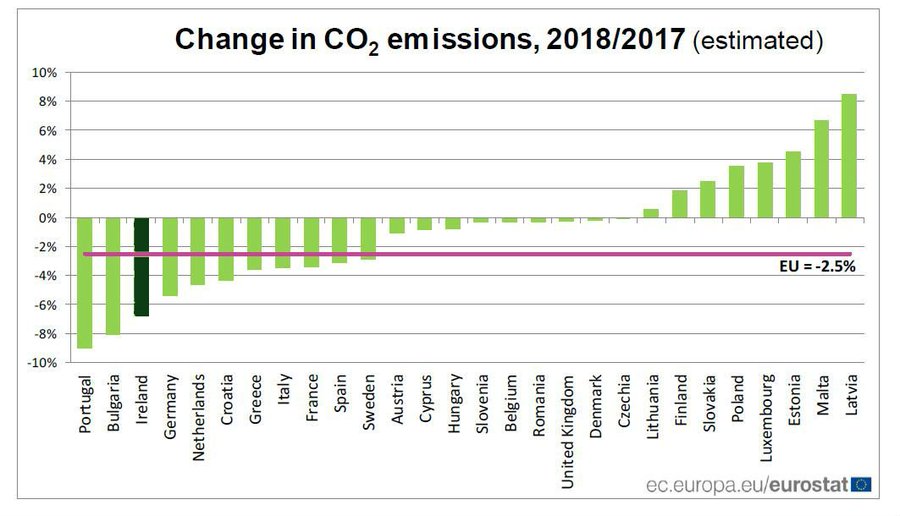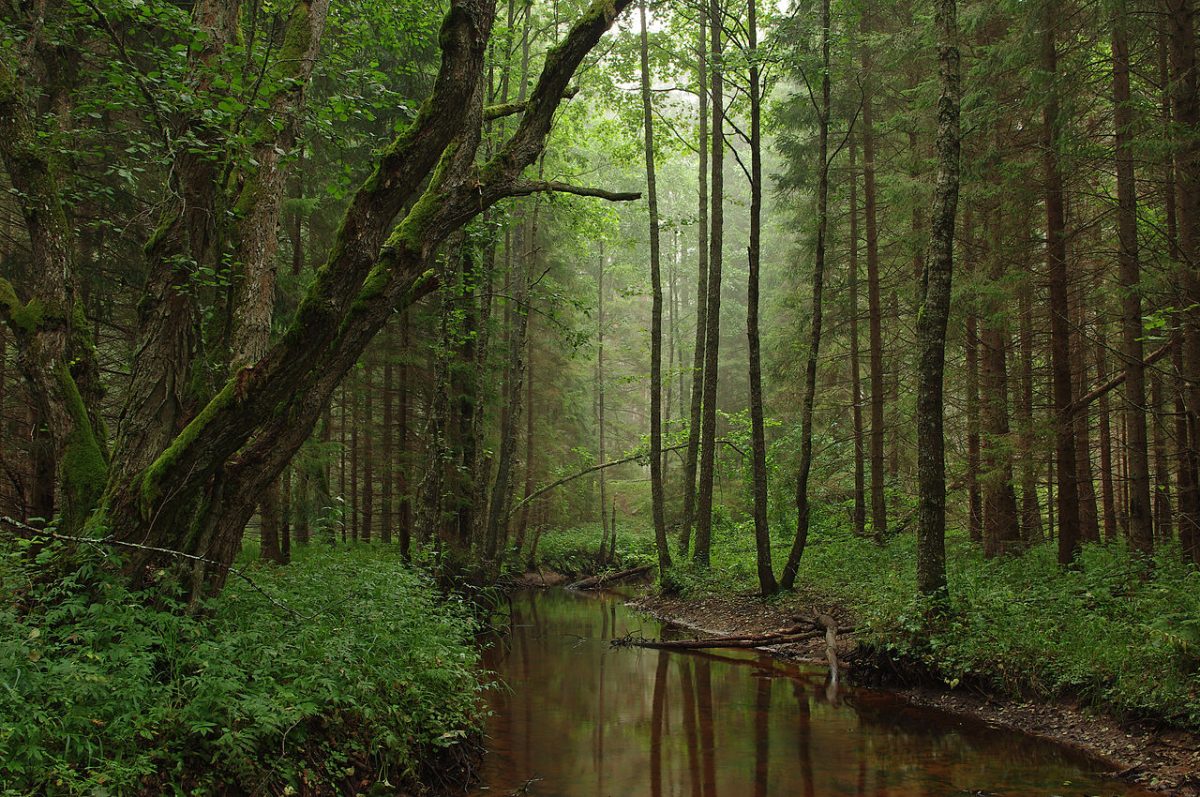Moneypoint shutdown drove down 2018 energy emissions

May 8th, 2019
Carbon emissions from the energy sector fell by 2.5 per cent across the EU in 2018, new data released today from Eurostat reveals.
New figures from the EU statistics agency estimate that the highest decreases in CO2 emissions from burning fossil fuels were recorded in Portugal (down 9 per cent) and Bulgaria (down 8 per cent).
Carbon dioxide emissions are a major contributor to global warming and account for around 80 per cent of all EU greenhouse gas emissions.
The third highest reduction in emissions was in Ireland, with an almost seven per cent reduction from 2017.
This drop, however, is largely down to the fact that ESB’s coal-powered Moneypoint station was offline for several months last year.
This was acknowledged by the Taoiseach who tweeted this afternoon that he appreciated that Moneypoint was a big factor in the drop in emissions.
Moneypoint is one of Ireland’s largest generating stations with a total generation capacity of 915MW, making up over one-fifth of electricity generation in 2016.
Last December, The Green News revealed that all three coal-fired units at ESB’s Moneypoint power station were out of action for several two months due to a forced outage at the Co Clare facility. No coal has been used for electricity generation over the past month in Ireland.
The vast majority of coal used in Moneypoint comes from the Cerrejon mine in Colombia that numerous human rights and environmental organisations, as well as academics have accused of links to intimidation, assault and death threats against activists.
Members of the Colombian organisation Fuerza Mujeres Wayuu – who recently visited Ireland to highlight human rights and environmental issue linked to the mine – were the subject of defamatory and threatening pamphlets posted on social media last month.
Irish emissions drop ‘circumstantial’
In 2017, emissions from power generation went down almost seven per cent due to a surge in renewables on the grid. Overall emissions dropped by less than one per cent, however, leaving us well off track to meet our 2020 climate targets.
Speaking in December, Dr Eimear Cotter, director of the EPA’s Office of Environmental Sustainability, said that the small emissions decline was mainly due to “circumstance rather than deliberate action”.
Household emissions were down five per cent but only because as 2017 was a warmer than normal year, requiring less heating during winter months, she said.
In addition, emissions reductions (2.4 per cent) in the transport sector only came about due to a fall in cross-border fuel tourism due to currency fluctuations brought up on Brexit.

The director of Climate Action Network (CAN) Europe Wendel Trio welcomed the new EU data and that the bloc has “started to walk the road to the zero-carbon economy” after four years without substantial emission reductions.
“Now we need to start running decisively,” he said. “All EU Member State governments need to put forward new policies and actions to strengthen the decreases and support long-term decarbonization.’’
Several EU states including France, Luxembourg and Sweden have signed a call to climate action ahead of the Future of Europe summit in Romania tomorrow.
It states that the EU should cut emissions to net zero by 2050 and impose further measures on 2030 emission cuts. Ireland is not one of the signatories.
By Marianne Foody & Niall Sargent







